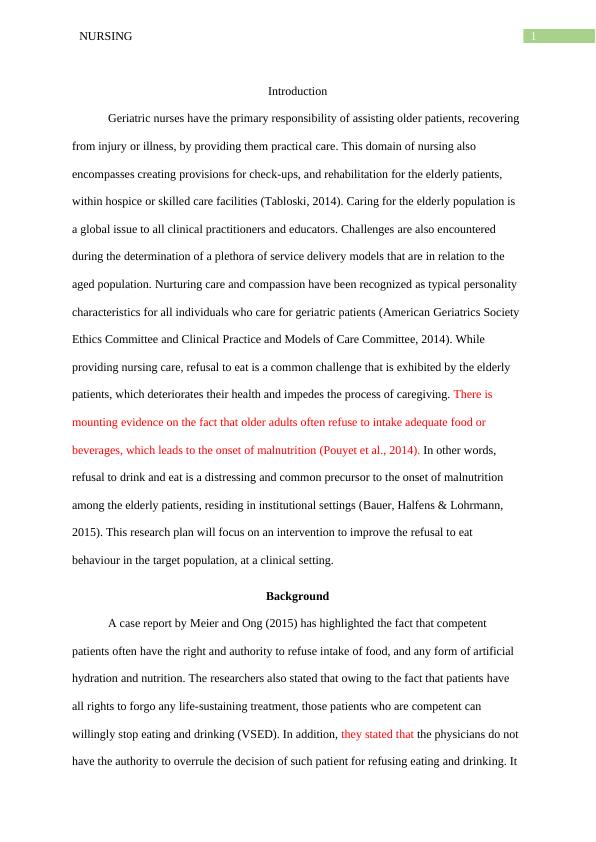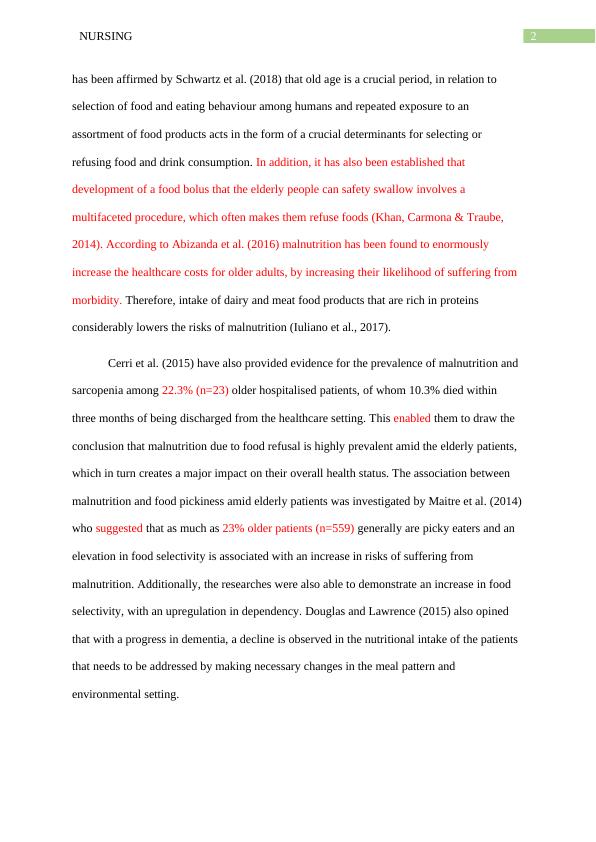Improving Refusal to Eat Behavior in Elderly Patients: Research Plan
Identify the important sections of a research proposal and provide a brief outline for each section.
10 Pages2277 Words466 Views
Added on 2023-04-05
About This Document
This research plan focuses on an intervention to improve the refusal to eat behavior in elderly patients in a clinical setting. It discusses the background, study design and methodology, data collection and analysis, anticipated problems, and ethical considerations.
Improving Refusal to Eat Behavior in Elderly Patients: Research Plan
Identify the important sections of a research proposal and provide a brief outline for each section.
Added on 2023-04-05
ShareRelated Documents
End of preview
Want to access all the pages? Upload your documents or become a member.
Improving Appetite in Geriatric Patients: A Research Proposal
|15
|3129
|404
Nursing NMBA Reflective Essay 2022
|8
|2038
|17
Interventions to Improve Healthcare Workers Knowledge of Oral Care for Elderly in Long Term Care Settings
|33
|7275
|90
Mental Health for Older Adults: Implications of Electroconvulsive Therapy
|12
|3254
|482
Functional Foods for Elderly People in Residential Care Units
|12
|3120
|209
Best Practices in Nursing: Fulmer SPICES - Assessing Health Issues in Older Adults
|2
|924
|71



